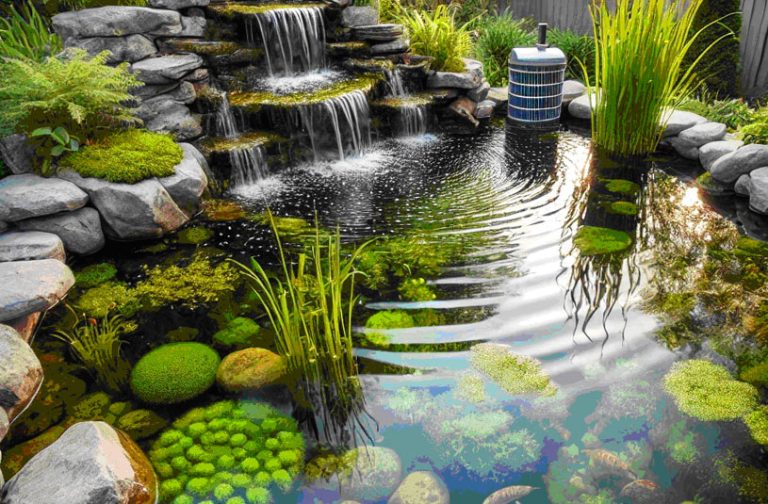Algae growth is common in ponds, especially during warmer months. While a small amount of algae is natural, excessive growth can lead to water quality issues, reduced oxygen levels, and an unsightly green layer on the water’s surface. These strategies will help you keep algae under control, so your pond stays clean and clear.
Understanding the Types of Algae
Algae generally appear in two forms: green water algae and string algae (also known as blanketweed). Green water algae consist of tiny floating particles that make the water appear cloudy, while string algae form long strands that attach to rocks and plants. Each type requires specific methods for effective control. A well-chosen blanketweed treatment can help tackle string algae and restore your pond’s natural clarity.
Regular Maintenance and Cleaning
Regular pond maintenance helps prevent algae from taking over. Skimming the surface for floating debris and removing sludge can significantly reduce algae growth by eliminating the nutrients they feed on. Professional pond cleaning services can also support a balanced ecosystem, removing waste buildup that encourages algae blooms.
Use of Aquatic Plants for Natural Algae Control
Aquatic plants, like water lilies and oxygenators, compete with algae for sunlight and nutrients, helping reduce algae growth. Floating plants provide shade, keeping the water cooler and limiting algae blooms. Planting a variety of species can support water quality; check out our guide to plants for algae control to find the best options for your pond.
Optimize Filtration and Aeration Systems
Algae thrive in stagnant, nutrient-rich water. An effective filtration system, like the Evolution Aqua Nexus Pond Filter, removes excess nutrients, while a good pond pump keeps the water circulating, discouraging algae from settling. Adding a fountain or waterfall further enhances water movement and oxygen levels, making it harder for algae to establish.
Applying Targeted Algae Treatments
Even with preventative measures, algae can sometimes flourish. In these cases, applying a suitable blanketweed treatment can help manage blooms quickly. Following up with regular water testing and occasional treatments as needed will help keep algae under control over the long term.
By following these strategies, you can enjoy a cleaner, clearer pond without constantly battling algae. A balanced approach to pond care can keep your water vibrant and healthy year-round.


